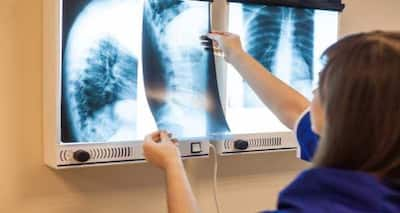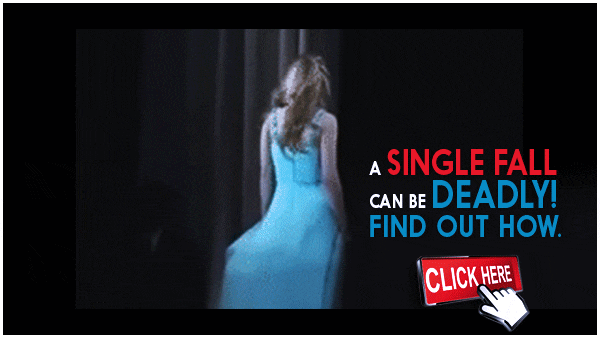Don’t Miss Out on the Latest Updates.
Subscribe to Our Newsletter Today!
Understanding the tests that detect bone diseases

Osteoporosis, arthritis or fracture, here's how you can get tested for various bone diseases and conditions.
If you are nearing your menopause or are above 5 years of age, you should get checked for bone loss and mineral density. Right from bone aches, swellings in the joint, fractures, and fragile bones, bone diseases could be infectious, degenerative or cancerous. So before you get tested for any of these problems, here's a detailed account of what you need to know.
1) Complete blood count (CBC): These tests give an idea about the level of infection in your body. To do this test, a pathologist or a nurse draws blood from the arm under aseptic conditions.
Results: In case of an infection of the bone (called as osteomyelitis) the white blood cells and predominantly the neutrophils are elevated. The hemoglobin is usually low in case of cancer in the bone or cancers that spread to the bone (metastasis). Certain degenerative bone disorders also cause a fall in the hemoglobin. Here's all you need to know about taking a CBC or Complete Blood Count test.
Also Read
2) Culture and sensitivity test: If there is a discharge from the bone, your doctor might ask for a culture and sensitivity test of the discharge to check for the presence of infection. It is done at most labs and costs around Rs 500 to 1000 rupees.
Results: The test may take three days, but if your doctor suspects tuberculosis, it may take a month. If the culture test result is positive, then a sensitivity test will determine the type of antibiotic that the bacteria is sensitive to, so the medication can be prescribed accordingly.
3) Synovial fluid analysis: Sometimes, the knee is swollen, and the X-ray reveals an effusion ( fluid in the joint). In such cases, your doctor might ask for a synovial fluid analysis to rule out the exact cause of the disease. It costs around Rs 1000 to Rs 2000.
Results: You might get the report the next day. The collection of the sample is done under the guidance of a radiologist and aseptic precautions, which is then sent to the lab for analysis.
4) Blood tests: Tests to determine the blood levels of calcium, phosphorous, parathormone, urea, creatinine, RF (rheumatoid factor) and Anti CCP (cyclic citrullinated peptides). The pathologist might draw the sample from the arm and send it to testing. HLA typing is done to assess genetic causes of bone diseases. Each test costs about Rs 300, except parathormone and RF factor that cost Rs 1000. Anti CCP and ANA being charged anywhere between Rs 1200 - 1500. HLA typing is done only at certain sophisticated centres and the prices vary.
Results: Parathormone levels are altered in renal failure also which affects the bone density. RF factor and Anti CCP are used to diagnose rheumatoid arthritis although RF factor is very non-specific and may be raised in other conditions and thus needs to be supplemented with other tests. ANA or anti-nuclear antibody are done if your doctor suspects systemic lupus erythematosus, which can cause bone aches. Read in detail about different types of blood tests.
5) X-ray: You might be recommended to undergo an anterior-posterior view or lateral view. The procedure just takes a few seconds, done at most diagnostic centres and costs not more than Rs 100 for each X-ray.
Results: The report is usually available within a few hours. A basic investigation though, it tells you if you bone is broken (fractured) or not. It also helps in the diagnosis of metabolic bone diseases such as rickets, osteoporosis and cancerous growth in the bone tissue.
6) Bone Mineral Density ( BMD) test: This test is used to determine the bone density and strength by measuring the amount of calcium in your bone. It uses a dual-energy x-ray absorptiometry (DEXA) scan and is a painless, non-invasive procedure, but should not be done in pregnant women. This test helps diagnose bone loss and the probability of you developing a fracture. It is done at sophisticated nuclear medicine centres and costs around Rs 3000 - 4000.
Results: The results of your test are usually reported as a T-score and Z-score. T-score compares your bone density with that of healthy young women and Z-score compares your bone density with that of other people of your age, gender and race. A T-score is within the normal range if it is -1.0 or above.
7) CT Scan ( Computerized Tomography scan): A CT scan combines X-ray and computer to produce images and give more detailed information than an X-ray. The images are taken from many different angles, creating detailed cross-sectional views of a person's internal structures. The test might require an injection of a contrast agent (for which you need a prior urea and creatinine levels).
Results: It provides information about various bone-related to injuries and diseases. The test is contraindicated in pregnant women as radiation exposure is very high (it takes few minutes to carry out the scan). The price may range from Rs 3000 - 5000 and is commonly used to diagnose cancers in the bone. Also read about top 10 facts you should know about CT Scans.
8) MRI ( Magnetic Resonance Imaging): In this, a magnet, radio frequencies and computer are combined to produce images of the internal organs. MRIs can produce exceptionally detailed images of bones and the soft tissues that surround them. The procedure takes around one to two hour and is radiation-free (so safe for pregnant women). It is a very sensitive test that costs around Rs 5000 - 8000 for each scan. It may cause claustrophobia in some people. During the procedure, it is advised to follow the instructions of the technician very carefully because you may be asked to hold your breath for a few seconds so as to take images of that plane.
Results: The test provides information about a break in the bone or fracture and deterioration of the bone as seen in arthritis. It is used to detect the presence of a tumour and the extent to which it has spread. MRI is also useful is assessing the placement of an implant (for example - hip replacement). The report is usually given to your after assessment by the radiologist. To know in detail about MRI, read this!
* If you have a kidney ailment, it is best to inform your doctor in case they plan to take you for a contrast MRI. For this test, you may be asked to drink a liquid or may be injected to check the functioning of your organs in a better way. In many cases, contrast MRI damage the kidney, though the doctor usually asks for a urea and creatinine before taking the patient up for an MRI.
9) Bone Biopsy: The test is done under aseptic precautions to diagnose infections or cancers of the bone. In this, a piece of bone (only the outer part) is taken and sent for microscopic examination. It could either be a needle biopsy -- where a small hole is made and the bone is taken -- or an open biopsy -- where a large incision is made and a big chunk of your bone is withdrawn. Usually a PT (partial thromboplastin time)/ APTT (activated partial thromboplastin time) is asked before this procedure is done. It costs around Rs 1000 for each test.
Results: These tests help to assess your clotting system because there may be a risk of bleeding from the procedure if PT/ APTT is abnormal. It is advisable to notify your doctor about your medication intake, any health ailment and pregnancy status before you go for this test. It is done in the operation theatre, and the patient is given anesthesia. The report is usually out in three days.
You may also like to read:
- 9 ways to prevent bone density loss
- 7 exercises that will improve your bone health for sure!
- 8 things that affect your bone health adversely
Image Source: Shutterstock
Calcium and vitamin deficiency can lead to osteoporosis. To know more about this condition, visit our Osteoporosis page section. For daily free health tips, sign up for our newsletter. For Osteoporosis related queries, visit our forum.



